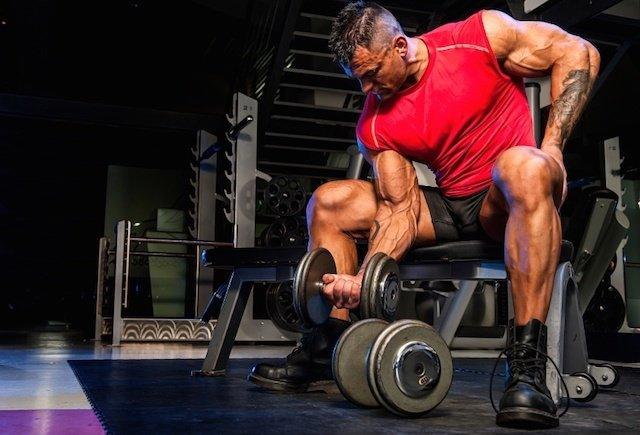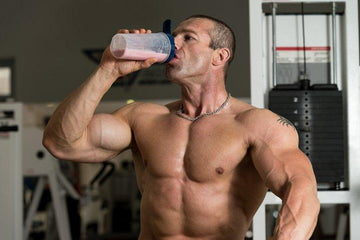Fifteen male boxers were divided into:
– exercise group and
-exercise plus Tribulus terrestris group.
The two groups both undertook 3-week high intensity and 3-week high volume training separated by a 4-week rest. Besides specialized technical training, the primary part of the high-intensity training was strength training including maximum strength training (twice a week, on Tuesday and Friday) and speed strength training (twice a week, on Monday and Thursday). For high volume training, the boxers undertook endurance training (10,000 m race every day and low to moderate intensity rope skipping twice a week, on Tuesday and Friday), and specialized technical training and speed strength training similar to high-intensity training.
Tribulus terrestris extracts (1,250 mg/day) were orally administered by boxers in exercise + Tribulus terrestris group. Before and at the end of the two trainings, muscle mass, anaerobic performance, and blood indicators were explored.

At the end of the study, markers of muscle damage were reduced and anaerobic performance was increased in the male boxers who took Tribulus terrestris extracts during high-intensity training. In the study, Tribulus terrestris extracts decreased the plasma level of IGFBP-3 in male fighters after the two trainings. IGFBP-3 binds to the anabolic hormone IGF-1 and decreases its bioavailability. These results suggested that the effects of Tribulus terrestris in trained male boxers may be mediated by decreasing IGFBP-3, ultimately increasing the bioactivity of IGF-1. It should be mentioned that taking 1,250 mg capsules containing Tribulus terrestris extracts did not change muscle mass and plasma levels of testosterone, DHT, and IGF-1 but significantly alleviated muscle damage and promoted anaerobic performance of trained male boxers, which may be related to the decrease of plasma IGFBP-3 rather than androgen in plasma.
Ma, Yiming, Zhicheng Guo, and Xiaohui Wang. “Tribulus Terrestris extracts alleviate muscle damage and promote anaerobic performance of trained male boxers and its mechanisms: Roles of androgen, IGF-1 and IGF binding protein-3.” Journal of Sport and Health Science (2015).
L. Yin, X.F. Wang, X.Z. Cao, X.H. Wang. The effects of Tribulus terrestris on the time of exhaustion in rats with high intensity training and its mechanism. J Shanghai Univ Sport, 37 (2013), pp. 73–77
X.H. Wang, J.Y. Sun, J. Qu, S.Z. You, W.J. Yang. Effects of Tribulus terrestris on exercise ability, endocrine and immune functions of over-trained rats J Shanghai Univ Sport, 34 (2010), pp. 46–49.



















